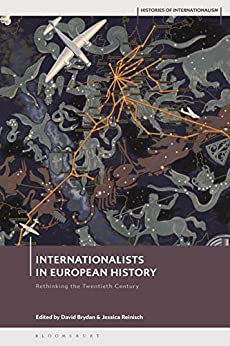The chapters cover aspects of internationalism such as the importance of language, communication and infrastructures of internationalism; ways of grappling with the history of internationalism as a lived experience; and the roles of European actors in the formulation of different and often competing models of internationalism. It demonstrates that the success and failure of international programmes were dependent on participants' ability to communicate across linguistic but also political, cultural and economic borders.
By bringing together commonly disconnected strands of European history and 'history from below', this volume rebalances and significantly advances the field, and promotes a deeper understanding of internationalism in its many historical guises. The volume is conceived as a way of thinking about internationalism that is relevant not just to scholars of Europe, but to international and global history more generally.











